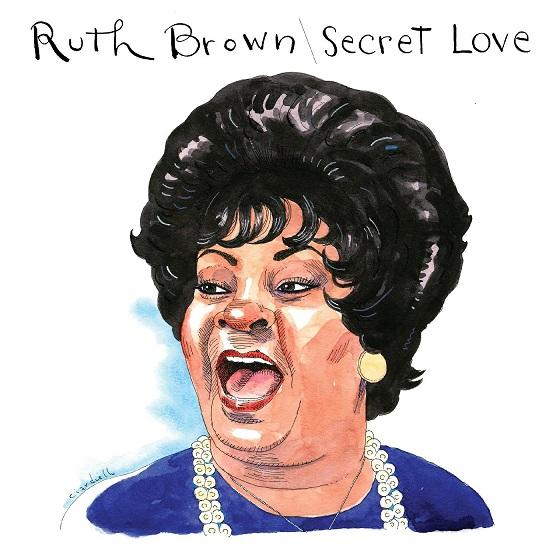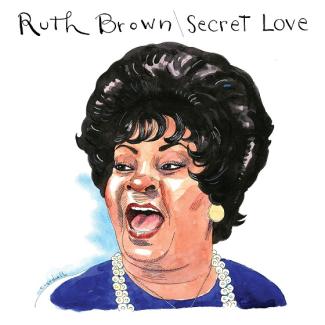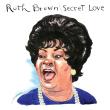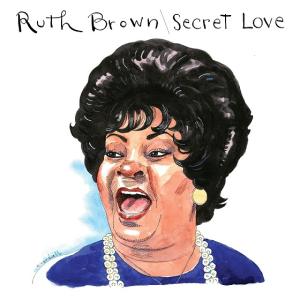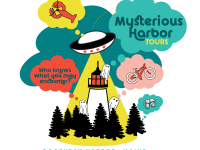Past gems from Ruth Brown, Gene Clark & Carla Olson, Sparks
Ruth Brown: Secret Love (Sunset Blvd. Records, 2 CDs). During the 1950s, the record industry called New York-based Atlantic Records “The House That Ruth Built.” That’s how important the many hits of R&B singer Ruth Brown were to the label’s early success. Even though Brown’s sales cooled off during the 1960s and there was a long stretch during the 1970s when she threatened to fall off the radar altogether, she still was making great records, even if few of her fans knew about them.
Sunset Blvd.’s new “Secret Love” compilation gathers tracks from three of those albums in a two-CD set. The first disc contains the entirety of Brown’s 1976 album “Sugar Babe,” one of the funkiest she ever cut. Produced by the legendary Jerry “Swamp Dogg” Williams, its tight, surging backing tracks, punctuated by punchy horns and soaring strings, were laid down in Muscle Shoals, with Williams writing all the songs.
The song “Brown Sugar” is the standout, with a nice beat and strings. It ends with her laughter. Horns highlight “You’re Gonna See a Lot More of Me Leaving,” which has a talk verse, and “My Old Bed,” which is a bit salacious and has a brassy vocal. Good are the backing female vocals on “Old Fashion Good Time,” about “loving you,” and the ballad “I Want to Sleep with You.”
There also is the scolding “Stop Knocking,” a midtempo song that tells an ex-lover to not bother coming back; the sweet, upbeat title track, with lots of horns; the bluesy “On Your Way,” which sends another ex-lover away, with a nice guitar break as well; the declarative “I Love My Man”; and “What Color Is Blue,” with its piano start and nice strings.
The second disc combines material from two albums recorded at Hollywood’s Gold Star Studios. The first was 1978’s “You Don’t Know Me,” which showcases Brown in an after-hours trio setting, led by pianist Lou Levy, who shines on “If I Were a Bell” and “Gee Baby Ain’t I Good to You.” These songs have a jazzy feel and include the Great American Songbook standards “Willow Weep for Me,” “Smile,” “Almost Like Being in Love” and “Skylark.” Also good is “Secret Love.” An upbeat exception is “Miss Brown’s Blues,” a jumping remake of “Hello Little Boy,” her wild 1953 proto-rock and roller for Atlantic.
The second album, 1979’s “Touch Me in the Morning,” expanded her combo and producer Herb Jeffries took Brown into more contemporary directions, including the title track that stretches to 8:13, “Best Thing That Ever Happened to Me” (7:44) and Bacharach-David’s “I’ll Never Fall in Love Again.” All eight songs from the album are included here.
Taken together, these three “lost” albums show Brown was capable of venturing in contemporary directions near her third decade of recording. The Portsmouth, Virginia native made her recording debut for Atlantic in 1949, entering the studio in crutches after a long hospital stay that was the result of a serious auto accident. She had a hit her first time out with the smoky torch ballad “So Long.” Her biggest sellers were up-tempo jumps, including “Teardrops from My Eyes” (1950), “5 – 10 – 15 Hours” (1952) and “(Mama) He Treats Your Daughter Mean” (1953). Only Dinah Washington rivaled Brown’s regal status among female singers on the R&B hit parade. Grade: A for disc one, A- for disc two
Gene Clark & Carla Olson: So Rebellious a Lover (Sunset Blvd. Records, CD). The late Gene Clark was a founding member of the folk-rock group The Byrds and wrote several of their classic songs, including “Eight Miles High.” This is a reissue of the 1987 studio album he recorded with fellow singer-songwriter Carla Olson. Released in April 1987, the album revived Clark's flagging career. Well-received, it became a modest commercial success and, at the time, was the biggest-selling album of Clark's solo career.
The 2018 reissue of the album added six bonus tracks, while this version ups the bonus tracks to eight, with a different take on Clark’s “Gypsy Rider” from 1985 and Olson’s “Number One Is to Survive” from 1989. Clark died in 1991.
Although no promotional singles were released from the original album, the tracks "The Drifter" and "Are We Still Making Love" by Olson and Clark’s "Gypsy Rider," a border song, and "Del Gato" were well regarded by fans. Another Olson-penned standout is “Every Angel in Heaven.” Also good among Clark’s eight songs are “Why Did You Leave Me Today” and the upbeat bonus song “Winning Hand.”
The original album also has covers of Woody Guthrie and Martin Hoffman’s “Deportee (Plane Wreck at Los Gatos),” John Fogerty’s upbeat “Almost Saturday Night” and Chris Ethridge and Gram Parsons’ “I’m Your Toy (Hot Burrito #1).” There is warm guitar on the traditional “Fair and Tender Ladies.”
The bonus tracks include covers of Phil Ochs’ “Changes,” which turns very upbeat after a soft start, and Dick Holler and Pat Robinson’s “Jokers Are Wild.” Grade: A
Sparks: Sparks 1974, including “Kimono My House,” “Propaganda” and 12 bonus tracks (Edsel Records import, 3 CDs). This collection brings together the two albums that Sparks – brothers Russell and Ron Mael, with Russell the singer and Ron the lyricist and player of the RMI Electra-Piano model 300 – recorded in London in 1974, after finding little success in their native America. Rounding out the band were Adrian Fisher on guitar, newcomer Ian Hampton on bass and Norman “Dinky” Diamond on drums.
The highlight of the wonderfully-named “Kimono My House” album is the spectacular “This Town Ain’t Big Enough for Both of Us,” a wild and fun operetta-styled workout to rival Queen’s “Bohemian Rhapsody.” Russell gets to sing about mammals and lust, khaki-colored bombardiers nearing Hiroshima, cannibals eating one for protein and increasing heartbeats. The song reached No. 2 on the British charts for two weeks. “Amateur Hour,” with its party sounds, reached No. 7 in August and “Never Turn Your Back on Mother Nature” reached No. 13 in November, as both albums, Sparks’ third and fourth overall, reached the Top Ten.
“Kimono My House” also contains the rocker “Thank God It’s Not Christmas” and “Hasta Manana, Monsieur” with its wild guitar.
The album “Propaganda” has, after its 20-second title track, “At Home, At Work, At Play” that takes a similar approach to “This Town.” “Reinforcements” is more of a march, while “Don’t Leave Me Alone with Her” is a rocker. After “Never Turn Your Back on Mother Earth” comes the dynamic “Something for the Girl with Everything,” while the cute “Achoo” ends with multiple “achoos” layered. Children shout the chorus on “Who Don’t Like Kids.”
The 12-track bonus third CD includes seven demos Sparks recorded in June 1974, including future B-sides “Barbecutie,” the joyful “Marry Me” and the mostly piano “Alabamy Right,” which also are included in their final versions here. There also is a live version of “Amateur Hour” and the nice demo of “A More Constructive Use of Leisure Time.”
The set comes in a 10-inch-square format and includes an 11-page illustrated booklet with a two-page essay by Jude Rogers and song credits. Grade: Kimono My House A, Propaganda A-, bonus disc B
About this blog:

My music review column, Playback, first ran in February 1972 in The Herald newspapers of Paddock Publications in Arlington Heights, IL. It moved to The Camden Herald in 1977 and to The Courier Gazette in 1978, where it was joined by my home video reviews in 1993. The columns ran on VillageSoup for awhile, but now have this new home. I worked at the Courier Gazette for 29 years, half that time as Sports Editor. Recently, I was a selectman in Owls Head for nine years.

